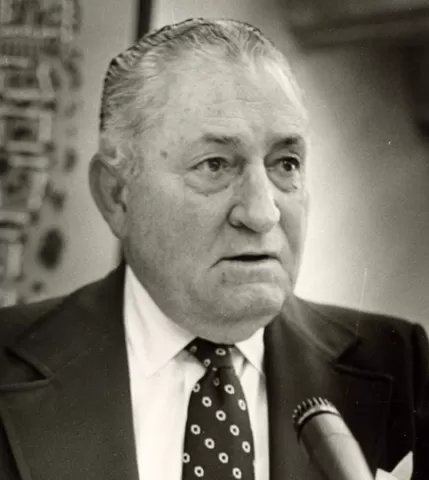Phillip Dillon O’Connell (1907-1987) was born in Macon, Georgia; the family started visiting Palm Beach seasonally in 1910. Phillip’s mother died when he was eight; he came to West Palm Beach to live with an aunt but attended school in both cities through high school. He earned his law degree at the University of Florida in 1931. O’Connell boxed professionally to finance law school and his brothers’ educations and won the first 59 of his 60 fights, many in an arena on Clematis Street.
During World War II, O’Connell served in the Army as Judge Advocate General (JAG) and with General Dwight Eisenhower in Europe; he was awarded the Bronze Star and the Croix de Guerre.
After one year of practicing law, O’Connell was elected municipal judge at age 23, forcing the city to modify their minimum-age ordinance from 25. Four years later, O’Connell was elected assistant state attorney, then state attorney, an office he held unopposed 1939-65. During his term, the state’s attorney only prosecuted crimes punishable by death; O’Connell lost only one murder case after 1945. Although it took five years to prove, O’Connell prosecuted municipal judge Joseph Peel, Jr. and the two men he hired in the 1955 murders of Marjorie and Judge Curtis E. Chillingworth.
O’Connell returned to private practice in 1965, where one of his sons, Phillip D. O’Connell, Jr. , soon joined him. He was a founder in 1974 of Flagler National Bank, and was active in several organizations, including establishment of the Palm Beach County Blood Bank.
One of O’Connell’s brothers, Stephen Cornelius O’Connell, served on the Florida Supreme Court 1955-67 and was president of the University of Florida 1967-73.


